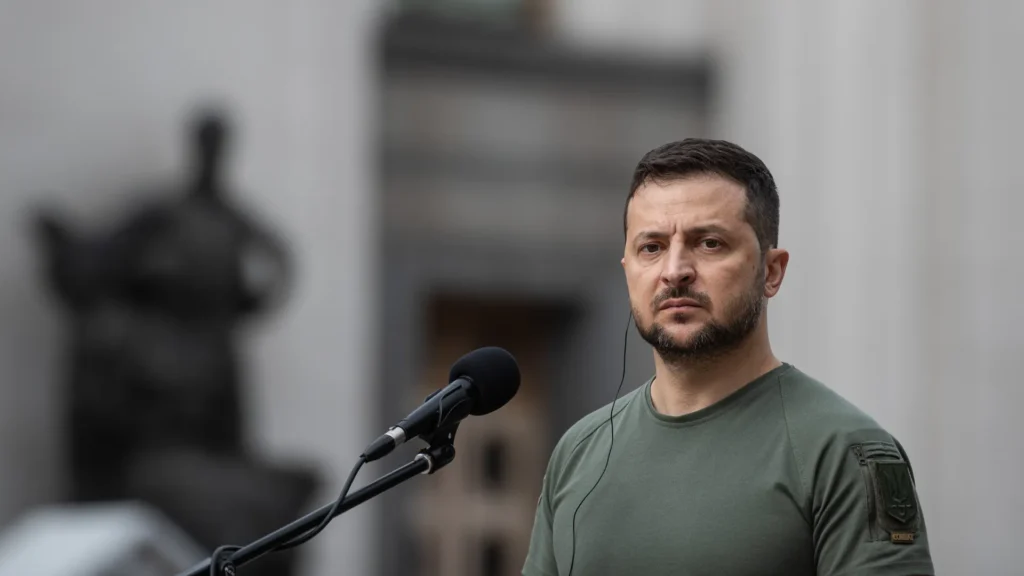Ukrainian President Volodymyr Zelensky has ignited public outrage and international concern by signing a bill that critics argue weakens the independence of Ukraine’s key anti-corruption institutions. The legislation, passed this week, places the National Anti-Corruption Bureau (NABU) and the Specialised Anti-Corruption Prosecutor’s Office (SAPO) under the control of the prosecutor general prompting fears of political interference and backsliding on democratic reforms.
In response, hundreds of Ukrainians took to the streets in Kyiv and other major cities including Lviv, Dnipro, and Odesa. It was the largest anti-government protest since Russia’s full-scale invasion began in February 2022. Demonstrators carried signs reading “We chose Europe, not autocracy” and “My father did not die for this,” referencing the sacrifices made during the Euromaidan uprising and the ongoing war with Russia.
Zelensky defended the move, claiming that the current anti-corruption infrastructure had been plagued by inefficiency and Russian infiltration. “There is no rational explanation for why criminal proceedings worth billions have been ‘hanging’ for years,” he said. He insisted that the prosecutor general would now ensure justice is delivered.
However, the decision has alarmed Ukraine’s Western allies, who were instrumental in establishing NABU and SAPO a decade ago as part of Ukraine’s pivot toward European integration. These institutions were designed to operate independently, and their integrity has been a critical condition for receiving EU and G7 support.
“The dismantling of key safeguards protecting NABU’s independence is a serious step back,” said European Commissioner for Enlargement Marta Kos. A spokesperson for the European Commission also warned that Ukraine’s eligibility for EU membership and financial assistance hinges on continued transparency and judicial reform.
The move comes just days after Ukraine’s Security Service and the prosecutor general’s office carried out raids targeting alleged Russian spies at NABU, further heightening tensions.
While international partners are unlikely to scale back support amidst Ukraine’s ongoing war, they are expected to pressure Kyiv to uphold democratic norms and protect anti-corruption mechanisms vital to its future EU accession.

